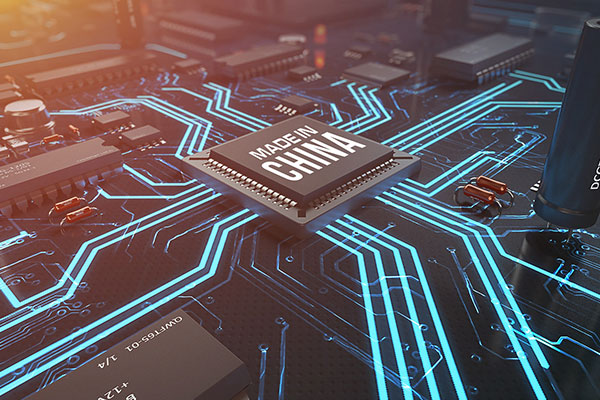LTC2245 and analog-to-digital converter GX2245 features and application advantages to share
Time:2025-01-23
Views:400
Analog-to-digital converter is a continuous analog signal into a discrete digital signal is a key component, widely used in sensor data acquisition, signal processing and control systems and other fields, the following mainly introduces the characteristics of the two analog-to-digital converter GX2245 and LTC2245 as well as application advantages.
1, performance
Resolution and sampling rate: GX2245 and LTC2245 are both 14-bit analog-to-digital converters, and the sampling rate of 80MSPS, 65MSPS, 40MSPS, 25MSPS, 10MSPS and other options to meet the requirements of different application scenarios on the accuracy and speed, whether it is a fast-changing dynamic signals, or relatively slow signals can be effectively Acquisition.
Signal-to-noise ratio and spurious-free dynamic range: At 80MHz sampling, the GX2245 has a signal-to-noise ratio of 72.8dB and a spurious-free dynamic range of 85dB, while the LTC2245 has a signal-to-noise ratio of 74.4dB and a spurious-free dynamic range of 90dB, both of which are capable of effectively suppressing noise and spurious signals during high-frequency sampling to ensure that the digital signals captured are of high quality and can meet the requirements for high-precision signal processing in imaging systems, communication systems and other applications. Both of them can effectively suppress noise and spurious signals during high-frequency sampling to ensure high quality of the acquired digital signals, which meets the requirements of imaging systems,
communication systems and other high-precision signal processing.
communication systems and other high-precision signal processing.
Linearity and precision: the DC specifications of the two chips, ± 1LSB INL (typical), ± 0.25LSB DNL (typical) and no leakage code, the reference noise at the input is also only 0.96LSB RMS, which makes them in the signal conversion process to maintain a good degree of linearity and precision, reduce signal distortion and quantization error, improve the system‘s measurement and processing accuracy.

2, chip features:
Architecture and circuitry: GX2245 and LTC2245 both use a multi-stage differential pipeline architecture, built-in high-performance sample-and-hold circuitry and on-chip reference voltage source, this architecture allows them to handle high-frequency wide dynamic range signals with excellent performance, can quickly and accurately sample and convert the input signals, while the on-chip reference voltage source simplifies the design of external circuits, reduces the number of components and circuit board space.
Power and Power Consumption: Both are powered by a 3V analog supply, with a single output power supply capable of driving 2.1V to 3.6V logic circuits. In terms of power consumption, both consume 60mW at 10Msps and 218mW at 80Msps. The low power consumption feature makes them excellent for portable devices and applications with stringent power consumption requirements, which can extend battery life or reduce system power consumption.
Summary: GX2245 and LTC2245 have similar performance and can meet the demand for high-precision and high-speed analog-to-digital conversion. In practical applications, the choice can be based on project requirements, cost budget, supply stability and other comprehensive considerations. In the pursuit of cost-effective and stable supply scenarios, GX2245 is a good choice.






